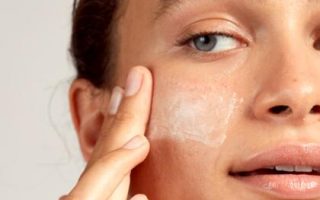Menopause is a very personal experience for every woman which is influenced by our lifestyle and our genes. Several changes associated with this stage of life occur inside the body, but one of them can hardly be ignored since it occurs on the surface: on our skin. Menopause, which officially begins a year after our last period, can lead to noticeable changes and symptoms that result from slowing the production of sex hormones like estrogen and progesterone. Among the common symptoms, mood swings and hot flashes are often reported by women going through this period. In addition, a question arises: does menopause cause skin problems for all women? In short, yes.
1. HOW DOES MENOPAUSE AFFECT YOUR SKIN?
Perimenopause is different from menopause, but these two stages of life come with many changes. Skin changes start in perimenopause , the transitional phase that can last just a few months to as long as a decade. Studies have shown that a woman’s skin loses an average of 30% of its collagen during the first five years of menopause, leading to the appearance of deep wrinkles and sagging skin on the cheeks and neck . Increased pigmentation, tenderness and itching are also common skin symptoms associated with menopause . However, dryness and acne are the most reported skin problems during this period.
2. HOW TO PRESERVE BEAUTIFUL SKIN AFTER MENOPAUSE?
We now know that the skin changes during menopause, but how should we take care of the skin, during and after menopause, to keep it looking its best? We know how to adapt our skincare routine to the four seasons, but change it to fit our hormones? It’s a little more complicated.
The first step: you should perform a skin test since your skin type may have changed totally, rendering your current skincare routine outdated.
It is important to pay attention to the specific needs of your skin during menopause and to adjust your daily routine to the problems you are facing. If you have extremely dry skin , look for moisturizing ingredients like hyaluronic acid and glycerin. You should also consider adding a nourishing serum or lotion rich in antioxidants and omega-3 fatty acids, such as jojoba oil, to your routine. If you suffer from more frequent acne breakouts, opt for a mild cleanser, sanitizing lotion with salicylic acid, or a light facial serum and moisturizer .
If you are wondering how to take care of mature skin with your diet, there are a few simple changes you can make to your diet to help maintain healthy estrogen levels. Increasing your intake of phytoestrogens, especially from flax seeds and fermented soy products, can mimic the effect of estrogen and increase estrogen levels in your body. Another option is to take an estrogen supplement to help the skin retain collagen, however the best way to increase collagen on skin is to get a collagen cream, which thereby directly help maintain its thickness, elasticity and ability to retain moisture.
A diet high in omega-3 and omega-6 fatty acids, found in wild caught fish, avocados, and coconut oil, can lower your cortisol levels, increase lean body mass, and increase levels of DHA (a type of omega-3 fatty acid) and vitamin D, both good for the skin and mind.


